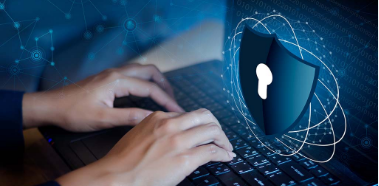As people celebrate the digital advancement, so do the cyber criminals. The conveniences that came with internet fraud and deceit is on another level. These internet based crooks are becoming highly sophisticated as day goes by. Individuals and companies are the main target through various means. Protection against these fraudsters and the safety of sensitive information requires a lot of vigilance. Apart from investing in digital forensics investigation, this article highlights other simple methods to help you avoid fraud and scams on the internet so that you can have a safe and secure experience online.
Use Strong, Unique Passwords for Each Account
Probably the easiest yet most effective method of keeping yourself from online fraud is making strong, unique passwords for all your accounts. Do not use information that is easily guessed, such as your birthday or some common word; instead, create complex ones with a combination of uppercase and lowercase letters, numbers, and symbols. In addition, a password manager can create and save safe passwords for you, saving you the trouble of having to remember them all.
Be Careful with Emails and Links
The phishing scams can pop up as emails from what sounds like a legitimate source, requesting that you click on a link or disclose personal information. Always verify the sender’s email address and be cautious of clicking links, especially when the email implies urgency or raises suspicion. Please hover over the link to see where it is forwarded, and never give sensitive information unless you are sure the request is legitimate. As the criminals find more way to do internet Fraud and Deceit you have to be more careful.
Avoid posting personal information online
Sharing full names, addresses, phone numbers, and other personal information like social security numbers on less-than-secure Internet websites or social networking sites can make you a cybercrime target. Be aware of what you are putting online and limit the type of personal information freely available to the public. Thus, when a website asks for more information than is apparently necessary, it will be better not to share such information.
Shy away from Online Offers That Seem Too Good to Be True
A great discount, a surprise prize, or a high-paying job after a minimum of effort and exposure- be wary of it. Scammers tempt you with this kind of thing because they will make sure you are either clicking into what might contain malware or presenting them with your data. Always verify the legitimacy of whatever online offer you get before proceeding to take action.
Learn About Major Scams
Knowledge is one of your best defenses against internet fraud. Keep yourself informed about the latest scams and how they work. This can range from anything like phishing attacks or requests for charity to lottery scams. Being prepared for the warning signs of these kinds of tactics will help you better avoid them. Many websites on cyber security and organizations maintain up-to-date lists of common internet fraud tactics.
Installation and Utilization of Authentic Security Software
Installing antivirus and anti-malware software on your devices is vital as it forms a line of defense against cyber threats. Genuine security software can block access to malicious sites or any phishing attempts that might contain malware compromising personal information. You should ensure that you get this software from a reputable provider and keep updating it from time to time to catch up with current trends in protection.
Internet fraud and deception in their various forms are some of the serious threats in today’s world of digitization, but proactive steps like investing in digital forensics investigations can put you in a less vulnerable position. Using strong passwords, enabling two-factor authentication, and keeping yourself updated on common scams are some of the many strategies that may help protect both personal and financial information. Follow these ten surefire ways to enjoy all the benefits of the internet while keeping those cyber criminals who attempt to exploit vulnerabilities at bay. Be alert, and your online experience will be a lot more secure.


